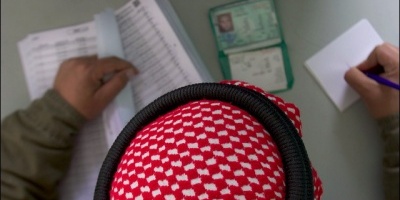The Daily Star (Opinion)
March 24, 2009 - 12:00am
http://www.dailystar.com.lb/article.asp?edition_id=1&categ_id=5&article_id=10031...
 The recent Israeli attack on Gaza made little strategic difference leaving Hamas still in charge of the strip, diminished militarily but arguably strengthened politically. Israel's use of disproportionate military force yielded political and public relations setbacks, with the captured Israeli soldier Gilad Shalit still in captivity and occasional rockets still being fired from Gaza.
The recent Israeli attack on Gaza made little strategic difference leaving Hamas still in charge of the strip, diminished militarily but arguably strengthened politically. Israel's use of disproportionate military force yielded political and public relations setbacks, with the captured Israeli soldier Gilad Shalit still in captivity and occasional rockets still being fired from Gaza.
A politically weakened Palestinian Authority (PA) continues to be in charge of the West Bank, and the independent government of Prime Minister Salam Fayyad has resigned. There is no sign that the misery of the people of Gaza will be relieved, or that serious reconstruction will be started anytime soon. The territory's crossings are closed and the siege continues.
The PA, in spite of years of diplomacy, has yet to secure any meaningful concessions from Israel, which is veering to the political right, away from accommodation. Hamas offers only bloody resistance that appeals to the Palestinian and Arab sense of dignity, while also piling up a record of deaths, injuries and destruction.
Israeli leaders cannot find the minimal political courage needed to halt the settlement expansion that undercuts their stated age-old goal of securing a Jewish state. Despite strenuous Egyptian and Arab efforts, direct negotiations between the Palestinian factions to establish a national-unity government, as well as indirect ones between Hamas and Israel on prisoners and crossings, have yielded no agreements.
The prospects of a negotiated agreement over a new Palestinian unity government are minimal, the optimistic rhetoric notwithstanding. It flies in the face of Palestinian and regional power realities and ideological divides. This impasse cannot even be resolved by force because both the PA and Hamas are entrenched in their separate geographic areas.
The rest of the world - including the Arabs, Muslims, Israel and the West - cannot resolve this impasse. It is up to the Palestinian people to do so by an act of willfulness. The world can help by seeing to it that the Palestinians have an opportunity to exercise that choice by holding open, fair and transparent elections. Of five Palestinian negotiations committees designed to discuss the outstanding issues between the PA and Hamas in Cairo, the only one that seemed to reach an agreement was the committee on elections, which recommended a vote in January 2010. Nothing could be more appropriate, or legitimate, than having the Palestinian people cast their ballots, with their eyes wide open, make their choices and live with the results. The world now seems to have a Palestinian target date and a mechanism for elections.
Protracted Palestinian negotiations to square the political circle must not be allowed to delay dealing with the reality of irreconcilable factional differences. Barring another Israeli attack, for the remainder of this year, Hamas will in all likelihood maintain its hold over Gaza while the PA will be in charge of the West Bank. Decisions dealing with these realities have to be taken without delay. Palestinian President Mahmoud Abbas should proceed forthwith to form a new PA government acceptable to the international community.
Even if the present reality precludes the PA government's ability to govern Gaza, the PA should not abandon its mandate but pursue its private aid program of reconstruction as it works diligently to lift the siege on Gaza. The new PA government must continue building on the solid foundation laid down by the Fayyad government to erect the infrastructure of the future Palestinian state. It should work diligently and methodically to hold elections on time and prevent others from derailing it.
The de facto Hamas government in Gaza will have to deal with all internal, regional and international political and economic realities and demands. It has to bear the consequences of its decisions and actions, knowing that the Palestinian people will vote come January and that elections cannot be avoided or postponed.
Through the policies that it pursues in the occupied West Bank, Israel will have a powerful role in determining who will run its future neighbor, the state of Palestine. It has to decide, and to demonstrate, whether it can work with a Palestinian partner in order to bring the conflict to an end. It can, of course, opt to block the emergence of this Palestinian state and allow those who prefer to continue the conflict indefinitely to prevail.
TAGS:
Recent In Print Articles
| Does a Two-State Solution Still Exist? | September 25, 2017 |
| What to do while no peace is in sight | June 22, 2017 |
| Living with a sloping status quo for 50 years | June 8, 2017 |
| Six-Day War: 50th Anniversary with Ziad Asali | June 7, 2017 |
| Fifty Years Since 1967: What Have We Learned about Arab-Israeli Peacemaking? | June 7, 2017 |
| Women in Iraq, Syria need our help | October 14, 2014 |
| ISIS and Sexual Slavery | October 3, 2014 |
| Confronting ISIL: The Day and Decade "After" | September 26, 2014 |
| Iraq’s Kurds reach a fork in the road | September 5, 2014 |
| Al-Omari calls for leveraging Gaza war toward ending Israeli-Palestinian conflict | July 31, 2014 |
















